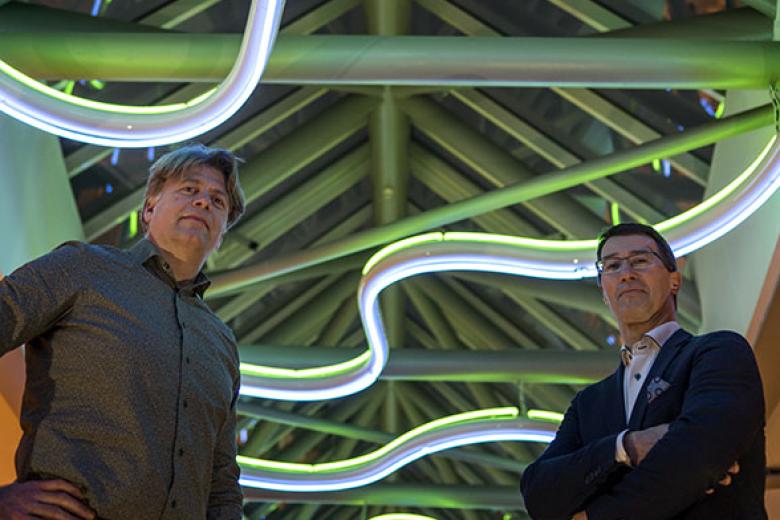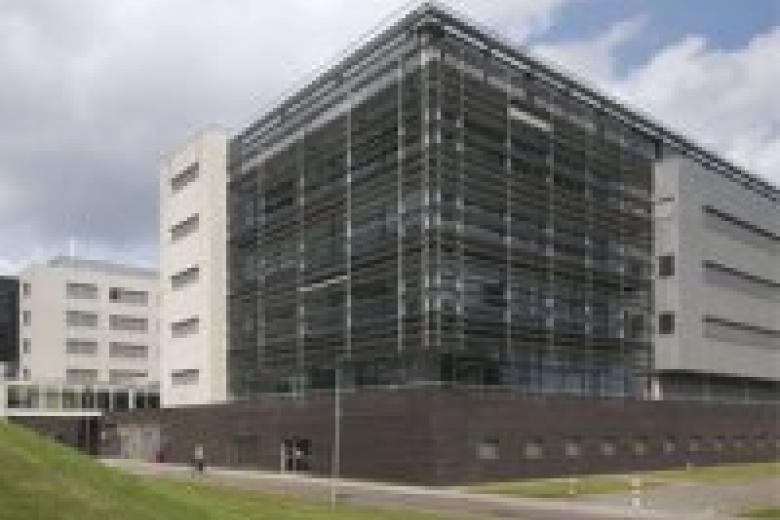BNNVARA regrets impact Rambam broadcast about UM professors
Dutch public broadcaster BNNVARA and production company CCCP have expressed regret over the impact of an edition of television programme Rambam which featured two Maastricht University professors. They acknowledge that the way the programme was edited may have created the impression that the professors could be “manipulated by industry”, according a statement issued by BNNVARA today.
Rob Markus, endowed professor of Neuropsychology, and Fred Brouns, endowed professor of Health Food Innovation, were quoted on Thursday 24 January this year in an episode of the Dutch television programme Rambam that centred around question ‘Is scientific research for sale?’ In the context of this episode, some statements by the two UM scientists have been interpreted by some as meaning that Markus and Brouns could possibly be bribed. Based on a few isolated quotes, an image was created in which the integrity of Markus and Brouns could be brought into question.
Raw footage
Shortly after the programme was aired, UM sent a request to production company CCCP to view the raw footage. A delegation led by Prof. André Knottnerus (emeritus professor of General Practice Medicine, former chair of the Dutch Scientific Council for Government Policy, or WRR, and former president of the Health Council of the Netherlands) reviewed the raw footage.
Based on this complete footage, Knottnerus concludes that there is no reason to doubt the good intentions and integrity of either of the UM professors. Knottnerus: “Given the course of events, I find it tragic that the programme makers and the secretly filmed researchers seem to agree on the heart of the matter—the importance of maintaining independence in conducting research, combating the commercial influencing of research results, and preventing selective publishing.” BNNVARA, who broadcast the Rambam episode on Dutch television, has now come to a similar conclusion.
BNNVARA statement
"In the wake of media reports Mr Markus and Mr Brouns, the University of Maastricht contacted CCCP and requested to view the raw images. This has recently taken place at the offices of the producer, CCCP. A delegation from BNNVARA was also present. After hearing the university’s judgment and its explanation of the scientific code and how this covers the statements made by Mr Brouns and Mr Markus, we have come to the same conclusion as the university. BNNVARA and CCCP regret the fact that the way the programme was edited may has created the image that these professors were open to manipulation by industry."
The connection between science and industry is a sensitive issue, especially now that science is increasingly dealing with third party funding. Both science and industry can benefit from reliable, objective and transparent cooperation. It is precisely to prevent this conflict of interest that UM uses the Netherlands Code of Conduct for Scientific Integrity from the VSNU and its own UM Integrity Code of Conduct (regarding scientific integrity). The UM Executive Board attaches great importance to these codes.
Also read
-
From instrumentation physicist to socially engaged scientist
Gerard van Rooij, professor of Plasma Chemistry, was the first PhD candidate of Ron Heeren, university professor and director of the M4I institute. Together they reflect on a pioneering period in which they took the first tentative steps in the development of imaging mass spectrometry.
-
Multi-million euro grant for the development of in vitro kidney models by MERLN
Multi-million euro grant for the development of in vitro kidney models by MERLN
-
